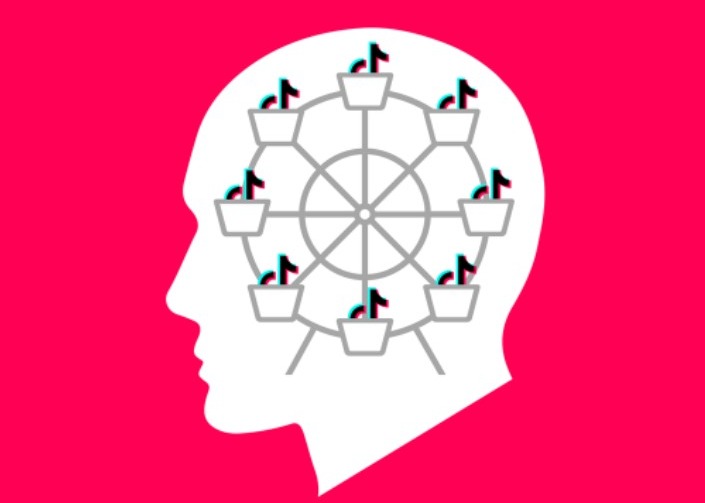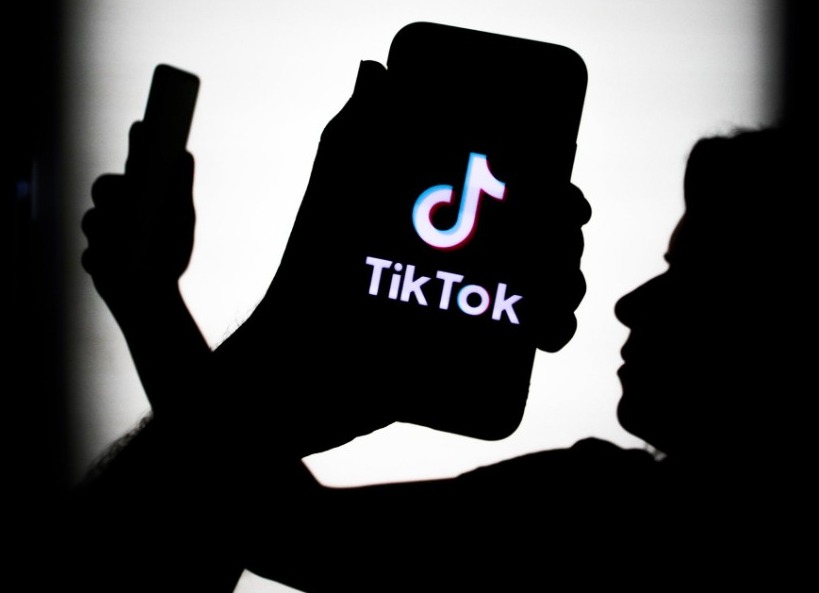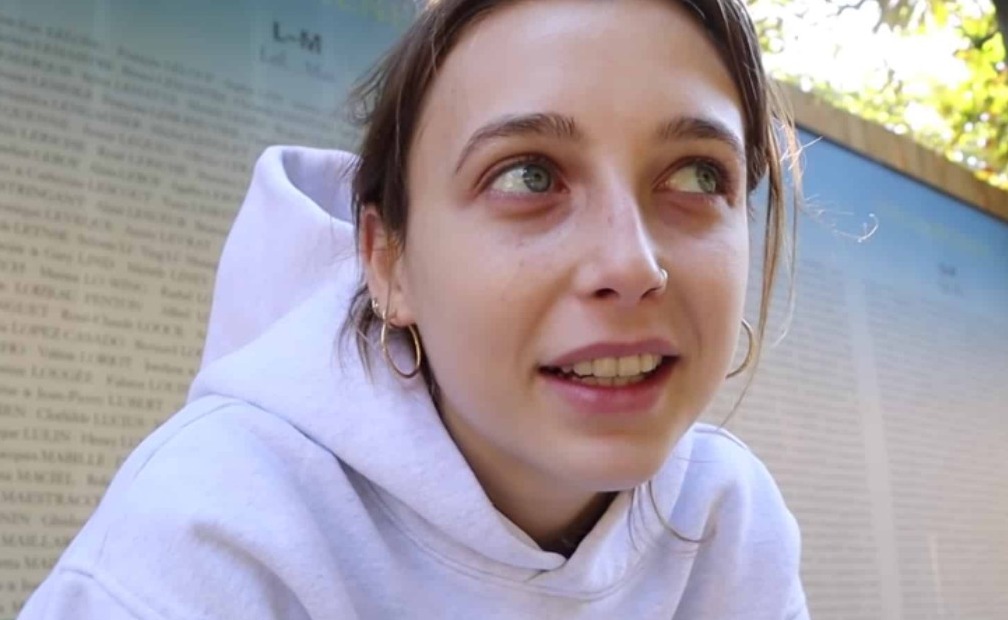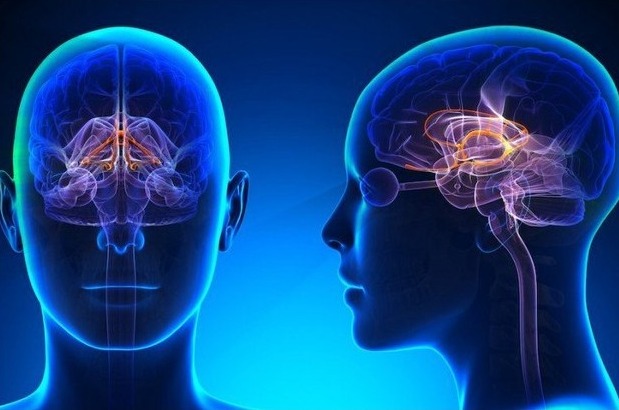TikTok is one of the most addictive apps of recent times. Users launch it, watch a video, and then continuously keep scrolling for hours and more. While some may think of it as a casual way of killing time, several researchers have linked it with a phenomenon known as the “TikTok Brain.”
After the global COVID-19 pandemic started, people were staying at home and had little to nothing to spend their time on. This led more and more people to TikTok where they can find tons of entertaining short 15-second videos.
After a while, they keep scrolling through TikTok videos, before sleeping, after waking up, while having a meal, on the toilet seat, or any other time. If you or someone else in your household can relate to the scenario mentioned above, you must learn more about the TikTok Brain.
What is TikTok Brain?
TikTok Brain isn’t a psychological disorder where your brain areas stop functioning when you stop scrolling TikTok videos. Instead, it is a more pervasive lifestyle issue that the researchers have started focusing on.
This concept started when the Wall Street Journal published an article with the title “TikTok Brain Explained: Why Some Kids Seem Hooked on Social Video Feeds.” Its synopsis states that “The dopamine rush of endless short videos makes it hard for young viewers to switch their focus to slower-moving activities. ‘We’ve made kids live in a candy store.”
Recently, Forbes has also called TikTok a “digital crack cocaine for your brain.” It means that the TikTok app and its videos work on your brain like a drug, and you keep craving more of them, and without them, you start feeling empty.
This is exactly what TikTok Brain is. It is the addiction to scrolling and watching TikTok videos to an extent where your brain is filled with it while it also needs more as you feel happy due to the release of Dopamine, which is a neurotransmitter responsible for pleasure.
Is TikTok Brain Real?
The concept of the TikTok Brain indeed seems real as there are multiple examples around who regularly use the TikTok app for an hour or two every day. Chelsea Diza, who is an ardent TikTok user and college student told Elite Daily, “I spend around two full hours every day on TikTok. When I wake up, TikTok. Before I go to bed, TikTok.”
Emma Chamberlain, who had more than 10 million followers on TikTok, is a living example that TikTok Brain is indeed real. She had deleted her TikTok profile as it was taking away a lot of time from her life.
On her podcast “Anything Goes,” she said, “I didn’t realize how bad the problem was until I cut TikTok out of my life.”
She then went on to reveal that the experience has been life-changing. Within the first few days of deleting TikTok, she stopped laying in bed for a prolonged period and started doing more chores as she got bored, whereas, she only watched TikTok videos for hours in bed previously.
TikTok brain is real, researchers say, and it’s affecting kids’ brain development. "We’ve made kids live in a candy store." https://t.co/wMpvNVoMF8
— The Wall Street Journal (@WSJ) April 2, 2022
The “For You” page on the TikTok app is developed in a way that it keeps you hooked up, and you keep scrolling one video after another, and then you suddenly realize that it has been hours you are doing that.
Researches and Scientific Findings On TikTok Brain
A Study from May 2021 which included an experiment with 30 student participants in China revealed that TikTok re-inforces video-watching behavior in your brain. When you watch the highly-personalized videos and generalized videos, the part of the brain that becomes active in reward cognition shows significantly positive activation.
Researchers in China found #TikTok triggers parts of the brain that are involved in addiction, making it difficult for children to turn away https://t.co/E3MSKiqHOB
— ABC7 Eyewitness News (@ABC7) April 5, 2022
Additionally, the part of the brain that helps you focus more on a certain thing also becomes active you passively keep scrolling through TikTok videos, whereas, the part of the brain that leads you to self-control becomes less active. Thus, it is difficult to stop once you start watching.
A research paper by Aparajita Bhandari, a communications graduate student focused on social media at Cornell University, and Sara Bimo, a master’s degree holder in science and technology studies from York University, revealed that TikTok operates way differently than any other social media platform.
They explained that the social expression differs on TikTok as it mainly focuses to interact with an algorithm that offers highly personalized videos from other creators. You do not virtually connect with your peers, and just interact with yourself internally.
Carl Marci, a psychiatrist at Massachusetts General Hospital in Boston has said, “It is hard to look at increasing trends in media consumption of all types, media multitasking, and rates of ADHD in young people and not conclude that there is a decrease in their attention span.”
John Hutton, who is a pediatrician and director of the Center for Reading & Literacy Discovery at Cincinnati Children’s Hospital, calls TikTok a “Dopamine machine.”
There’s also emerging research that your brain reacts more positively when you are watching the highly-personalized videos the TikTok algorithm offers. Your brain gets the hits of Dopamine and craves more of that.

What happens if you have TikTok Brain?
TikTok Brain isn’t classified as a disease or disorder yet by Health experts globally. However, it has certain long-term harms that are enough to make you worried about your children, or anyone affected around you.
According to Robin Berzin, Doctor and Founder of Parsley Health, watching TikTok videos for a prolonged period can negatively impact your short-term memory, attention, and concentration. When you are hooked up to the screen of your phone, you stop paying attention to what is going around you.
Excellent piece:
" Professor of psychiatry & behavioral neuroscience, said she predicts they will find that when brains repeatedly process rapid, rewarding content, their ability to process less-rapid, less-rewarding things “may change or be harmed.”"https://t.co/dDL3iiVHRB
— Zineb Riboua (@zriboua) April 4, 2022
There’s also research evidencing that regularly watching TikTok videos for hours significantly reduces the attention span of an individual. When they get addicted to having only 15-seconds of something, they get bored, annoyed, or less attentive when you present something that is longer in length.
For instance, they will find YouTube videos like long and boring documentaries, and they won’t be able to read books. The affected people will also have the TikTok songs playing in their minds when they are away from the app.
that “i wanna ride” tiktok sound is engraved in my brain.
— kristyn (@inLovewMyslef) April 3, 2022
TikTok is also super influential. It makes you think and believe that what you see in the videos is real. It starts shaping your way of thinking and majorly influences your decision-making. However, the real world is way different than what you see on TikTok or any other social media platform.
The ads on the platform may sometimes lead to buying things that you never needed. The “TikTok made me buy it” trend is a live example of that. The more you see something on the app, the more you become familiar, and your brain starts signaling that you should have it as well.
How to overcome if you are suffering from TikTok Brain?
TikTok Brain isn’t hard to overcome but it requires a certain amount of willpower. The first step is to realize and agree that it is a problem and you have to fix it. After that, you have to find and implement ways that help you spend less time on TikTok and more on doing what is more important.
I deleted tiktok bc it was rotting my brain and keeping me from homework, but I really miss the 2-10 people who don’t know me but would comment on every dumb thing I did. That was nice
— theo.txt 💾 (@theotxt) April 5, 2022
You can try developing a new hobby, participating in a sport, or volunteering somewhere. Going out for a walk or something else at least once a day also helps you rely less on your smartphone.
If it’s your kids who have got TikTok Brain, you can take control of their smartphone, and allow them to use the app for a shorter period of time. Keep decreasing this period and start introducing them to other activities and good applications.
You can also seek help from a professional counselor or psychiatrist if you believe that the problem has gotten bigger, and you can’t fix it yourself. Only discipline, proper planning, and willpower can help you overcome this issue.
Do you know someone around you who has got TikTok Brain, and you think they should overcome it? Share your experiences in the comments section.




